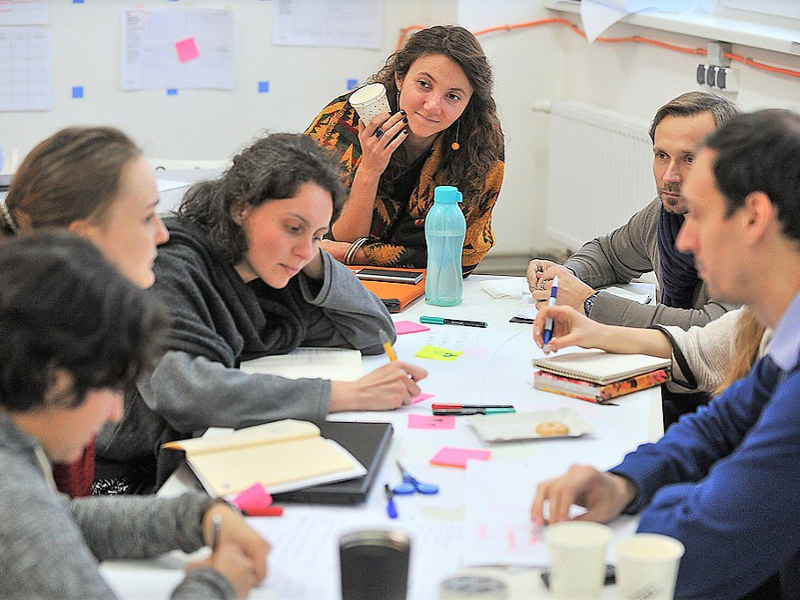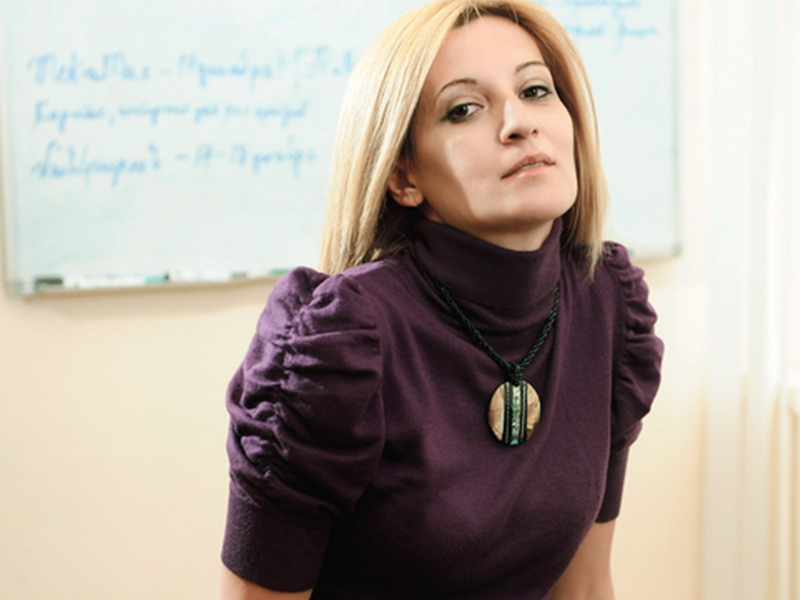
Taking a creative hobby to creative business
When I was graduating from secondary school, I could not choose which I liked more for my future career – business or cultural studies. My parents said I should be rational, culture was not serious enough to get a decent job in Ukraine. To make my parents happy, I chose economics. For a long time I enjoyed working on local economic development projects and on strategies and business models with companies. At the same time, I longed for a proper education in the arts. I left consultancy and studied theatre and performing which totally changed my perspective on the phenomena of creativity.
The process of creating needs discipline as much as the process of strategic planning needs spontaneity. Good creative products were not necessarily making it to market and well-established companies often struggled with the lack of ideas. This discovery inspired me to become a Workshop Associate for the Creative Enterprise Programme in Ukraine and share my experience with those who are starting a creative business.
In 2017 cultural and creative industries (CCI) generated about 4.04% of Ukraine’s GDP and created 3.17% of jobs. The fastest developing creative fields are IT, architecture, design, fashion, and media production. But there is still stigma and stereotypes associated with “non-industrial’ occupations which derives from the heavy industry-oriented Soviet economy. Intangible assets are not yet widely recognised as “real” capital. This often leads to the underestimation of the value of creative work, both by society and by the creatives themselves.
In Ukraine, working in “culture” or “creation” (e.g. museums, galleries, performing and visual arts) means using artistic imagination without regard to profit-making (or even income generation). Working in “creative” (e.g. design or marketing) is perceived as almost part of the business sector and for profit or income. But the more “creating” the activity is, the further it stands from being perceived as part of economy. Recent research shows that the most popular definition of success among creative professionals is to combine profit and creative interest.
CCI professionals frequently say that creativity is not recognised in Ukraine as something worth paying for. Low salaries makes these jobs look unattractive and is often an obstacle for men for entering the CCI labour market. It is expected that women bring in additional – not the main – income for the family so therefore “can afford” to work in CCI and earn less.
Taking a creative hobby to creative business
Both male and female entrepreneurs struggle with the limitations dominating the national market, at the same time they are often missing the opportunities of going global. Ukrainian export promotion office recently declared that they have difficulties in finding Ukrainian creative businesses aiming at internationalisation.
Even shifting from being a creative person to being a creative entrepreneur is another challenge. A recent survey of Ukrainian participants on the Creative Enterprise Programme showed that the majority entered the market without being sure of their business model. On one hand, this can be interpreted as a willingness to take risks, but on the other, as a lack of understanding that business models can be developed and tested before entering the market. There is lack of business support opportunities in Ukraine – no pre-incubation, incubation and business development programs for creative entrepreneurs.
Ukrainian creative businesses are essentially undercapitalised. Entrepreneurs start with minimal capital and underestimate capital requirements for start-ups and development activities. Despite the obvious need for finance for operational activities, developing of new products or accessing international markets, many entrepreneurs are fundamentally opposed to attracting investment.
There is a lack of banking services for CCI and a fear of losing control with the involvement of investors. Often entrepreneurs don’t know investors and don’t have access to information about investment attraction. Unlike IT and tech startups, creative entrepreneurs in Ukraine don’t have a platform for getting acquainted with investors.
The Creative Enterprise Programme in Ukraine provides opportunities to fill some of these gaps. During the three-day workshop entrepreneurs go through the pre-incubation process – they test their business models and meet business support institutions and fellow entrepreneurs. After getting familiar with the business language, the creatives sometimes realise they value spontaneity over strategy and decide to stay with a hobby choosing more relaxed mode – a great result! The majority though get inspired for scaling up and come out of the room with the new partnerships and plans – that is where the power of the Creative Enterprise Programme methodology begins.
Read more: https://www.nesta.org.uk/blog/creative-hobby-to-creative-business/




